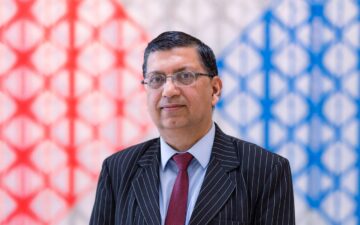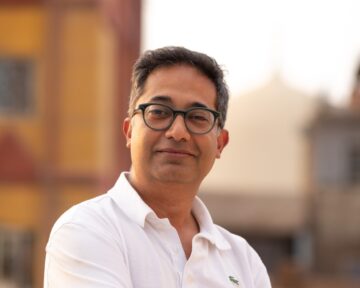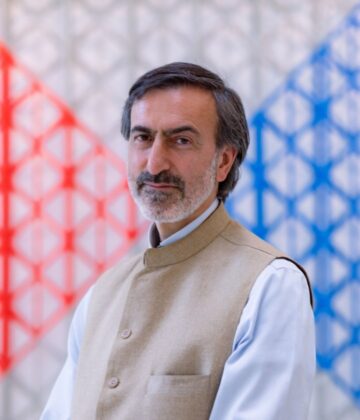Dr Shainool Jiwa discusses the Egyptian TV show “El-Hashashin” (The Assassins) with Julian Marshall on BBC Newshour. “El-Hashashin” retells legends associated with Hasan Sabbah (d. 1124) and the Nizaris in Persia and Syria during the Alamut period (1090-1256). In this discussion, Dr Jiwa outlines the origins and spread of the assassin legends in the medieval period, as well as the biases associated with these stories.
Julian Marshall: Hello and welcome to NewsHour from the BBC World Service coming to you live from our studios in central London. I’m Julian Marshall. The Iranian authorities have banned a popular Egyptian TV series, accusing it of having a biased approach to history. The Assassins was a big hit this Ramadan, which is traditionally when high profile TV series are broadcast across the Arab world.
[Audio from The Assassins trailer]
Julian Marshall: It tells the story of an Ismaili Shi’a Muslim sect that carries out political killings in the 11th century, from which the word assassin is derived. According to legend, their young men were brainwashed by stays in a heavenly garden and intoxicating drugs, after which they were willing to sacrifice their lives for their leader. Earlier, Dr Shainool Jiwa of the Institute of Ismaili Studies in London helped me to sort out fact from fiction.
Dr Shainool Jiwa: So, the Nizari IsmailisAdherents of a branch of Shi’i Islam that considers Ismail, the eldest son of the Shi’i Imam Jaʿfar al-Ṣādiq (d. 765), as his successor. come from the Fatimid dynasty in Egypt, which ruled altogether in the region from 909 till 1171. There was a split from within the Fatimid family itself in terms of succession and one group followed Nizar, his eldest son – al-Mustansir Billah’s eldest son — and took refuge in Iran and in Syria. And that is the origin of the Nizari Ismailis, who later in Sunni sources and in orientalist literature, come to be referred to as the Hashishin and then the assassins that then eventually enters into the tales that Marco Polo tells to his companion while he was imprisoned in Genoa, where this idea that there were these people who gave their lives for the cause under the influence of hashish. And that eventually enters into the English language as assassins. So that’s where the transition from this word hashishiyun (takers of hashish) then gets associated with the word assassin. And the legends that surrounded this group came to be read as fact, as it were.
Julian Marshall: So, you’re saying that they’re just legend about the assassins?
Dr Shainool Jiwa: There is a group called the Nizari Ismailis, but the way the narrative has then got yarned over centuries, has put in a lot of other interpretations and has dramatized it.
Julian Marshall: So there never was a group, you’re saying to me, that carried out targeted killings of its opponents.
Dr Shainool Jiwa: They did carry out targeted killings of their opponents because they were a very small group now residing under the Seljuks, who were clearly their adversaries. So, they couldn’t have armies like they did under the FatimidsMajor Muslim dynasty of Ismaili caliphs in North Africa (from 909) and later in Egypt (973–1171) More. They were a very persecuted small minority group living in the mountains. So, one of the ways that they survived was to kill their key opponents from time to time.
Julian Marshall: And I mean, who were their perceived enemies?
Dr Shainool Jiwa: CrusadersA term applied to Christian invaders who carried out numerous campaigns to capture Jerusalem and Palestine from the Muslims in the 11th and 14th centuries CE., the Seljuk Turks, and the Fatimids as well, because those who continued in the Fatimid line were very threatened by the Nizari Ismailis.
Julian Marshall: You’ve had a chance to see this Egyptian TV series called The Assassins. What did you think of it?
Dr Shainool Jiwa: It’s a very dramatized version. It’s a way of presenting some snippets of truth, with a lot of legend and fabrications and stories around it that make it, you know, a racy watch.
Julian Marshall: And why do you think the Iranians would want to ban it? It would seem to be a rather negative portrayal of Shi’a Muslims at some point during their history.
Dr Shainool Jiwa: Absolutely. That would be a very fair statement to make that it’s a negative portrayal of Shi’a and that is a historical legacy, because the majority of Muslim historiography was written by Sunni authors. So, you do get that bias in the sources.
Julian Marshall: That was Dr Shainool Jiwa at the Institute of Ismaili Studies here in London.







